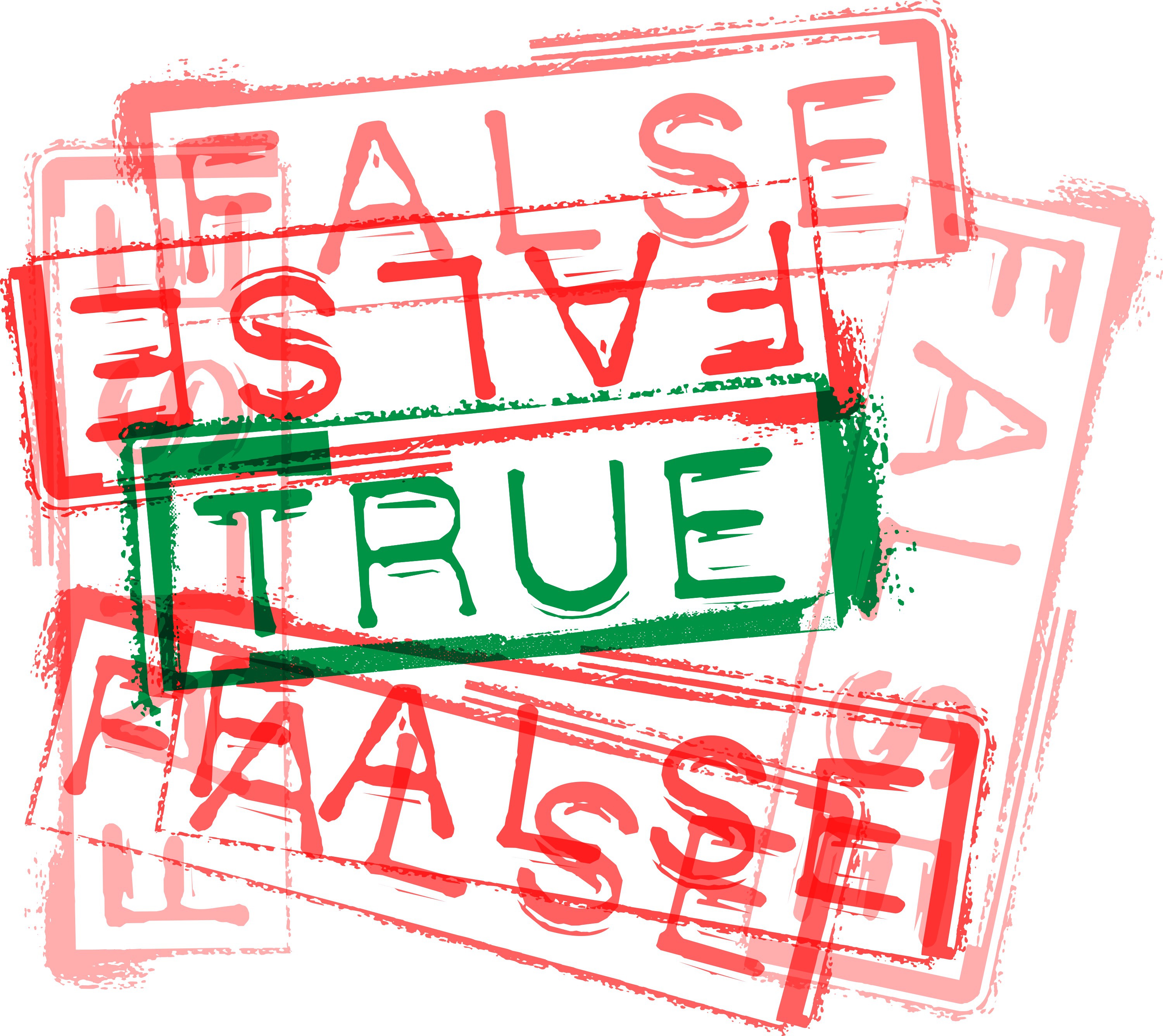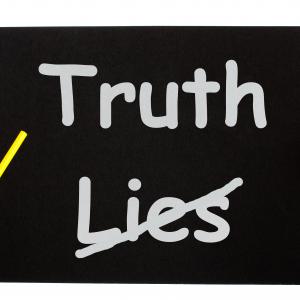The story is told of a country store owner who was in the back of his store. He saw his young clerk at the front talking to a customer. He was horrified as he heard the young man tell the woman, “No, ma’am we don’t have any of that and looks like we won’t for quite a while.”
The store owner ran to the front frantically and blurted out, “Yes, we have it on order, and it’ll be here next week. Don’t you worry about it.”
As soon as the woman left, the owner reprimanded the clerk. “Don’t you EVER tell a customer that again. You have to cover up the fact that we are out of it with the statement that it’s on its way, even if you know it’s not on order.”
“Yes sir,” dutifully responded the young clerk.
“By the way, what was she wanting?” asked the store owner.
“Rain,” responded the clerk.
Telling a small or large lie has become second nature to many of us. We are even encouraged by our superiors or co-workers to stretch the truth. While lying may serve to offer a short-term relief, it ultimately breaks long-term trust, something that is much more problematic than a short-term problem fix. As one of the Seven Influence Traits™, lowering our trustability lowers our integrity AND our ability to influence.
We don’t often see that we are lying because we simply maneuver the truth, obscuring areas we don’t want uncovered.
How We Maneuver the Truth
1. We release only some of the facts.
At times, we hide or obscure the facts or pieces of the storyline that aren’t in our favor. We may drip out the information slowly, rather than providing full disclosure.
When this information is not in favor of the receiving party, it can become like Chinese water torture. Information that was released all at once the receiver can handle, but when it is dripped out, trust is actually eroded quickly. The hearer wonders what bad news had been withheld from me and when is that coming?
2. Arrange the disclosure in a certain order.
No one enjoys revealing unwanted news. In order to minimize the “badness” of the news, we are often tempted to say things such as, “We did X because of Y, and I’m sorry to say X failed.” We do this even if we were doing X long before Y happened or before we even thought of Y as an excuse that could remove a degree of our culpability for doing the failing X action.
3. Shift the timeline (or frequency) of the story.
In this evasion, we attempt to avoid blame by changing the timeline of the story or facts in terms of when the event happened or the frequency at which it happened.
“This was happening then….just once, not since….way in the past….in this limited scope,” are often used phrases.
An example of this method of maneuvering is the defense that many athletes use upon getting busted for doping. It was just once. I did it way back when.
4. Get off on a technicality or false-rationalizing.
This maneuver parses words to their minimal meaning in order to avoid responsibility or guilt. Many of us remember Bill Clinton’s famous “it depends on what your definition of ‘is’ is” when he was questioned about the Monica Lewinsky scandal. By making words mean their most limited meaning, we attempt to skate when we know we are responsible.
False-rationalizing is the making up of an alternative narrative backstory to justify our wrong actions. The spouse who wanders then says, “Well, if my spouse would be more loving, I wouldn’t have needed to have an affair.”
Remember the 3x/1x Principal
Perhaps this can be a personal deterrent to lying. For every lie you tell others, you are telling three to yourself. You are, in effect, breaking your own trust of yourself. This will ultimately shatter your confidence.
To Them
1. The original lie
To Yourself
1. The original lie
2. The lie of “I’ll get away with this”
3. The lie of “This lie isn’t hurting anyone”
No one wants to be lied to, so we need to stop lying to ourselves.. When we lie, we distance ourselves from reality. We hide parts of ourselves and project something false to the world. Doing this over and over has a negative effect on our sense of goodness and self worth. Each of us deserves the relief of being able to tell the truth about yourself to the world. You are worth getting to know for who you really are. Regaining the ability to take pride in your true identity is probably the most important reason to stop lying.
Truth Telling is a Lost Practice in Today’s World
In our world of spin, hype and “marketing,” lying has become an all too common practice in the business world. Yet despite its common use throughout human history, lying has consistently done one thing - break down trust.
Every relationship, business or personal, is predicated upon feeling safe. Being lied to and feeling safe are incompatible. Whether a romantic relationship, a friendship, or a professional relationship, honesty is the brick and mortar of both establishing and building a relationship. When you are tempted to maneuver the truth, remember that trust takes years to build and seconds to demolish with the wrecking ball of a single lie discovered.
Commit to the Straight Truth
In the movie “Something’s Gotta Give,” Diane Keaton catches the man she loves on a date with another woman. This cheated woman is chased out of the restaurant by a distraught Jack Nicholson. He pleads, “I have never lied to you; I have always told you some version of the truth.” Diane replies replies, “The truth doesn't have versions, okay?” Keaton captures it so well. The truth may have many sides to it. It may be complicated or hard to understand, but it exists … in one version. Commit to not only avoiding telling outright lies but also to stop maneuvering by shading the truth to make it fit more comfortably into our lives.
In our next post in the series, I’ll provide some practical tips to help each of us better tell the full truth consistently.




